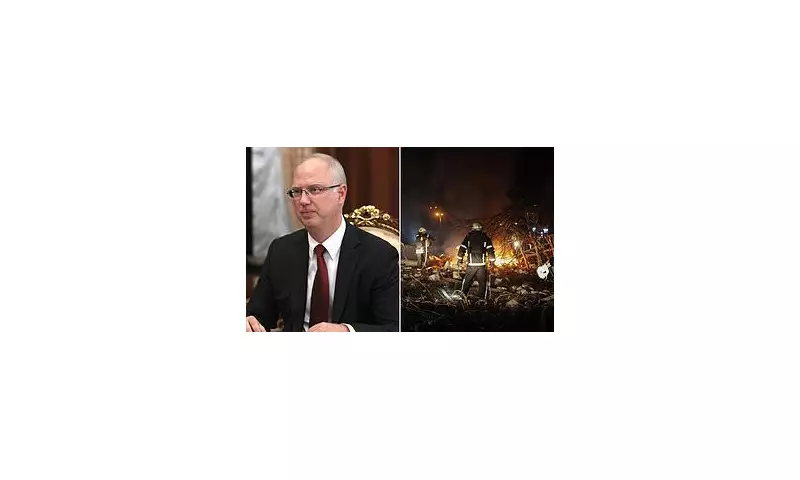
A seemingly accidental tweet from Donald Trump's special envoy has ignited a diplomatic firestorm, revealing details of a controversial peace plan for Ukraine that appears heavily favouring Russian interests.
The Tweet That Started It All
What began as an apparent social media blunder has uncovered a potentially significant shift in American foreign policy towards Ukraine. Steve Witkoff, special envoy to Donald Trump, responded to reports about a secret 28-point peace plan by writing: 'He must have got this from K'.
Online investigators quickly deduced that the mysterious 'K' likely referred to Kirill Dmitriev, a Russian businessman often described as the 'Trump whisperer' for his remarkable ability to connect with the unpredictable American president. The 50-year-old is now accused of helping draft the widely criticised peace agreement.
Controversial Peace Terms and Backlash
The initial proposal reportedly demanded that Ukraine surrender substantial territories and accept strict limitations on its military capacity. However, following intense international criticism, the plan has been returned for significant revisions.
Sources within the administration have expressed concern about America's negotiating stance. 'This hasn't been a negotiation. This literally is the Russian ideas typed up', revealed an insider to the Telegraph.
The Trump administration faced further embarrassment over the weekend when forced to deny allegations that the document was originally composed in Russian before being hastily translated. Meaghan Mobbs, daughter of Lieutenant General Keith Kellogg - the US special envoy to Ukraine who recently announced his departure - identified numerous transliteration errors and political phrasing characteristic of Russian documents.
The Russian Connection and Diplomatic Fallout
Marco Rubio, America's secretary of state, was reportedly instructed to present the document to the Senate while explicitly stating it was 'not the administration's plan' and represented 'essentially the wish list of the Russians'.
Despite these assurances, Rubio later claimed on social media platform X that 'The peace proposal was authored by the U.S. It is offered as a strong framework for ongoing negotiations' and incorporated input from both Russian and Ukrainian sides.
Kirill Dmitriev, the alleged architect, boasts an impressive international background. Born in Kyiv during the Soviet era, he became an exchange student in New Hampshire at just 14 years old. His academic journey took him through community college in California before prestigious degrees at Stanford University and Harvard Business School.
His professional career included positions at Goldman Sachs, McKinsey & Company, and General Electric before assuming leadership of the Russian Direct Investment Fund (RDIF). The United States sanctioned Dmitriev in 2022 following Russia's invasion of Ukraine due to his role at the state-backed investment vehicle.
Strategic Leaks and International Concessions
Experts suggest the document's disclosure was deliberate, designed to normalise Russia's demands among Western audiences. Keir Giles, author of the Handbook of Russian Information Warfare, explained: 'They do this as a shaping operation to establish this outcome in the minds of the Western public and the media'.
The strategy appears effective, with Ukraine's allies making substantial concessions to Moscow in recent negotiations. In a significant development, Britain and other nations have agreed to readmit Russia into the G8 group of major economies, from which it was expelled after annexing Crimea in 2014.
While peace talks in Switzerland showed progress, including increasing the proposed cap on Ukraine's armed forces from 600,000 to 800,000, several points remain contentious. Vladimir Putin insists Ukraine relinquish remaining eastern territories, while Kyiv seeks to maintain political sovereignty and pursue NATO and EU membership.
Despite the controversies, Secretary Rubio described recent discussions as 'probably [the] best meeting and day we've had so far in this entire process', expressing optimism about reaching an agreement. Ukrainian President Zelensky also acknowledged positive developments, noting understanding that American proposals might incorporate elements of Ukraine's vision.
The potential reinstatement of Russia into the G8 is expected to depend on Moscow meeting other commitments, including compensating Ukraine and observing ceasefire agreements.





